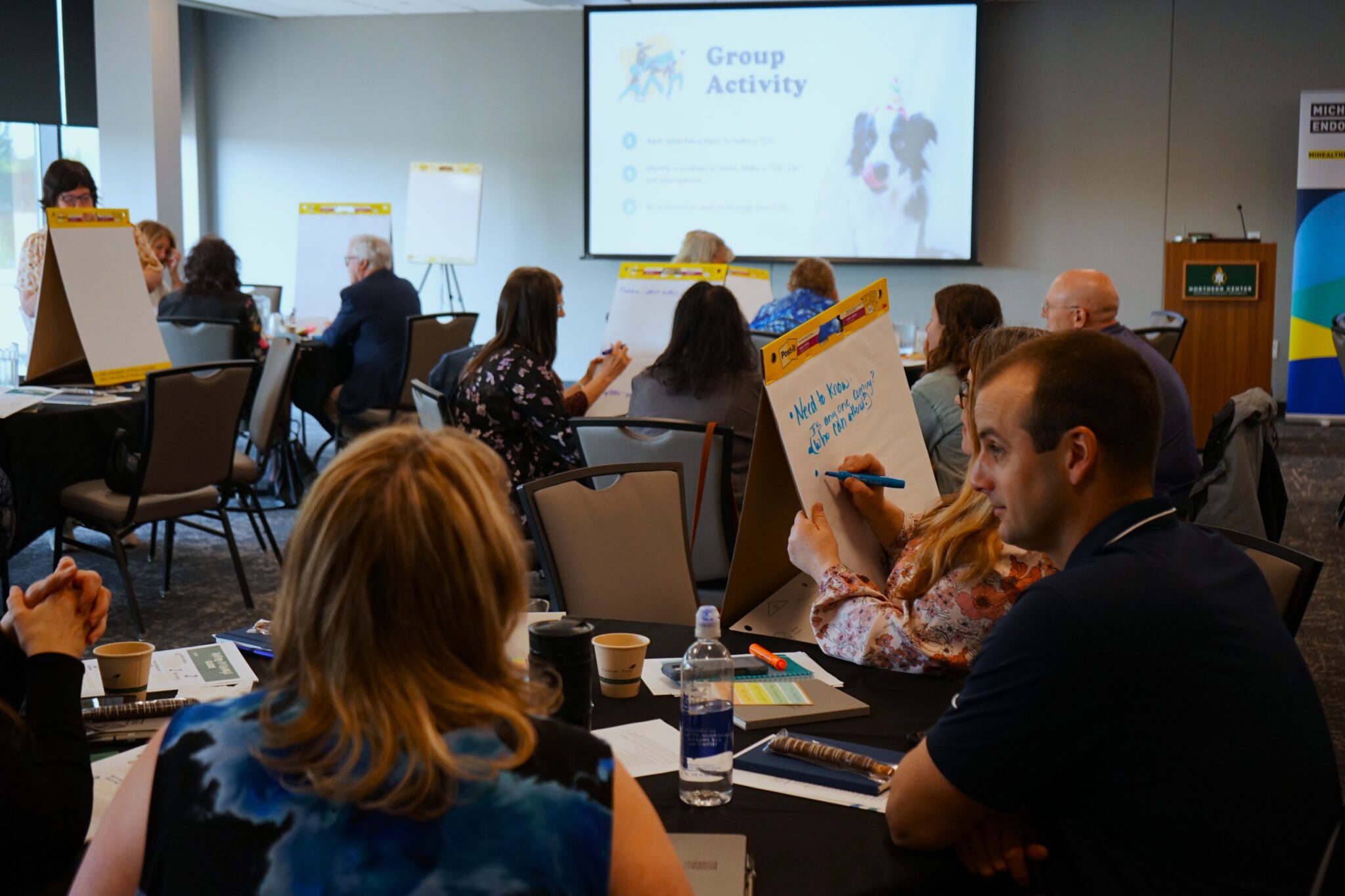
Throughout the summer, we’ve been excited to host a workshop series aimed at helping grantees make effective use of data to support progress toward their missions.
Collecting quality data that address key programmatic questions enables organizations to understand their community, improve their approach, and communicate their impact to the audiences that matter most to their success.
The series brought data and evaluation consultants from Delaney Data Empowerment together with small groups of grantee staff for targeted discussions designed to provide fresh perspectives on data, evaluation, and storytelling.
The exciting part? Each session came with actionable tactics and new tools that are freely available to all.
As summer hits the home stretch, let’s look back at our workshops and highlight the resources and tools that emerged from each one.
DATA DASH
Our first workshop in May started with the essentials: How do you decide what program data to collect? How do you make it actionable? Who is the audience that you’re sharing your data with, and what do they need to learn from it?
This session centered on building a collection plan that leads to the specific knowledge you’re looking to learn. It included guidance on identifying stakeholders and data sources, framing survey questions, and collecting and analyzing the data that comes out of your work.
During this session, we unveiled a new planning tool designed to help organizations think through their data collection plans from conception to implementation. A completed example shows how to put the tool to use.
DATA FIESTA
Our August “Data Fiesta” was all about survey design to secure valuable client and community feedback. This sessions focused on the features that make surveys good — and bad — along with best practices to follow to make sure yours is the right kind of survey.
Presentation materials offer guidance to develop questions that produce useful results and motivate your target audience to actually complete your survey. They also offer creative ideas to refresh your survey delivery methods and ask questions in compelling new ways.
Example materials and exercises to spot and fix bad survey questions can help put lessons learned into practice.
STORYTELLING WITH IMPACT
This data session at our June convening with the Superior Health Foundation and health organizations in the U.P. had a strong storytelling focus, centered around a step-by-step guide to creating clear, compelling theories of change.
Theories of change can guide organizations’ work and form a compelling narrative to engage and persuade funders and stakeholders. Our presentation introduced replicable examples of theories of change and a worksheet to help users create them on their own.
Our Capacity Building grantee convening in October included a repeat session on theories of change for those who weren’t with us in the U.P., and now we’re sharing the session tools for anyone to be able to use.
WHY DATA MATTERS
By measuring impact, attitudes, and outcomes successfully, organizations can inject insight into the information they share with their clients, community, donors, and other stakeholders. We hope that the lessons and materials developed this summer will continue to help our grantees and other organizations make progress on their data journeys for years to come.
